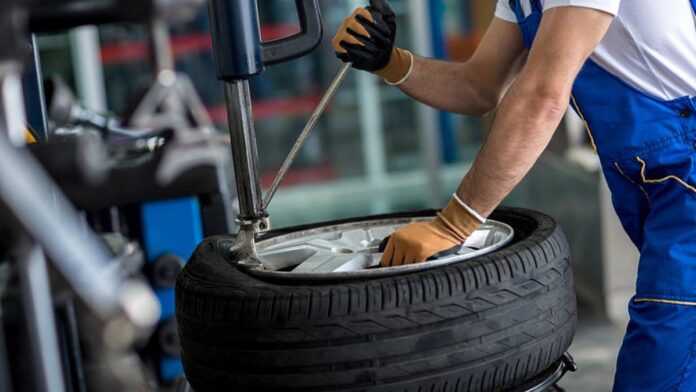Workshop gloves are a vital piece of personal protective equipment (PPE) in any garage or workshop. Whether you’re a professional mechanic, a DIY enthusiast, or a weekend tinkerer, the right pair of gloves can make all the difference in both safety and performance.
Working in a garage involves handling tools, chemicals, and sharp materials that can cause injury if you’re not properly protected.
1. Protection Against Cuts and Abrasions
In a garage setting, tools like wrenches, pliers, and screwdrivers are frequently used, which increases the risk of cuts and abrasions.
Workshop gloves provide a layer of protection between your skin and sharp or rough surfaces, significantly reducing the risk of injury.
For mechanics, cuts and scrapes are not uncommon, and without gloves, even a minor injury can turn into an infection or worse.
Specific types of gloves, such as cut-resistant or puncture-resistant gloves, are made from materials like Kevlar or nitrile-coated fabrics that offer enhanced protection against sharp edges.
Mechanics and garage workers should always opt for gloves that are designed to handle their specific tasks, as these are more likely to withstand the rigors of daily use in a garage setting.
2. Chemical and Oil Resistance
Garage shops are full of chemicals, oils, and greases, each of which can be harmful if it comes into contact with your skin.
Prolonged exposure to substances like motor oil, brake fluid, and cleaning solvents can lead to skin irritation, burns, or even more serious health problems over time.
Workshop gloves made of nitrile or other oil-resistant materials can protect your hands from these hazardous substances. Nitrile gloves, for example, are resistant to oils, fuels, and certain chemicals, making them ideal for auto mechanics.
Latex gloves, while common, aren’t as resistant to oils and solvents as nitrile gloves.
Latex can degrade when exposed to oils, which compromises protection and leaves you vulnerable. Choosing the right material for the gloves ensures you get effective protection while maintaining a good grip on tools and parts.
3. Enhanced Grip and Dexterity
Working on a vehicle requires precision, and many garage tasks involve small, delicate parts. Workshop gloves are designed to offer an excellent grip, which is essential for handling these parts and preventing slips.
Nitrile-coated gloves, for example, provide a high level of grip without adding too much thickness, which allows mechanics to retain dexterity.
This is especially important in jobs that require delicate or fine motor skills, such as screwing, twisting, and holding onto bolts or wires.
Some gloves even come with textured surfaces on the fingers and palms, enhancing grip when working with slippery or greasy parts.
This textured design helps you maintain control and precision, which reduces the chances of accidental tool drops or mishandling of equipment.
4. Protection from Temperature Extremes
Another reason gloves are essential in a garage setting is that they can protect your hands from extreme temperatures.
Whether you’re working on an engine that’s been running for hours or you’re in a cold workshop during winter, temperature fluctuations can impact comfort and safety.
Heat-resistant gloves are designed to shield hands from high temperatures, preventing burns when touching hot parts.
On the other hand, insulated gloves can keep hands warm and comfortable in cold environments, helping you focus on the task at hand without numb fingers.
5. Reduced Fatigue
Wearing gloves with the right fit and ergonomic design can reduce hand fatigue, which is crucial for mechanics who spend long hours handling tools.
Many gloves are designed to provide cushioning and support, minimizing strain on the hands and wrists.
This ergonomic benefit allows mechanics to work more efficiently, with reduced discomfort or risk of repetitive strain injuries, such as carpal tunnel syndrome.
Gloves with extra padding or reinforced areas on the palms and fingers can also help absorb vibrations from power tools. By reducing the amount of shock transmitted to the hands, these gloves make it easier to use tools over extended periods without experiencing as much discomfort or fatigue.
6. Preventing Infections and Contamination
Wounds from cuts or scrapes, no matter how minor, can lead to infections if left untreated.
Wearing gloves reduces the chances of injury in the first place and also prevents direct contact with bacteria, dust, or rust that may be present in the garage.
Mechanics frequently come into contact with dirty or contaminated surfaces, so gloves act as a first line of defense, ensuring that hands remain clean and protected from contaminants.
Additionally, wearing gloves can prevent you from inadvertently transferring harmful substances to your skin.
Chemicals, oils, and dirt can easily be transferred from the hands to the face or other areas of the body, which can lead to irritation or contamination.
Choosing the Right Workshop Gloves
Selecting the appropriate gloves for your garage or workshop depends on the specific tasks you perform. Here are some factors to consider:
- Material: For general tasks, synthetic materials like nitrile and latex offer excellent protection and dexterity. For heavy-duty tasks, look for gloves with reinforced materials like Kevlar.
- Fit and Comfort: Gloves should fit snugly without restricting movement. Many gloves come in different sizes, so be sure to find the right fit for optimal comfort.
- Durability: Mechanics often need gloves that can withstand wear and tear. High-quality gloves may be more expensive, but they offer better protection and last longer.
- Grip and Dexterity: Choose gloves with textured or coated surfaces if you work with small parts or need precise control.
Conclusion
Workshop gloves are an essential investment for anyone who works in a garage setting.
They provide protection from cuts, abrasions, chemicals, temperature extremes, and contamination, while also enhancing grip and reducing fatigue.
Choosing the right gloves for your specific tasks can increase safety, improve productivity, and ensure that your hands stay healthy and injury-free.
Investing in high-quality workshop gloves is not only a wise choice but a necessary step for anyone serious about working safely and effectively in a garage.
For more posts, Click here
